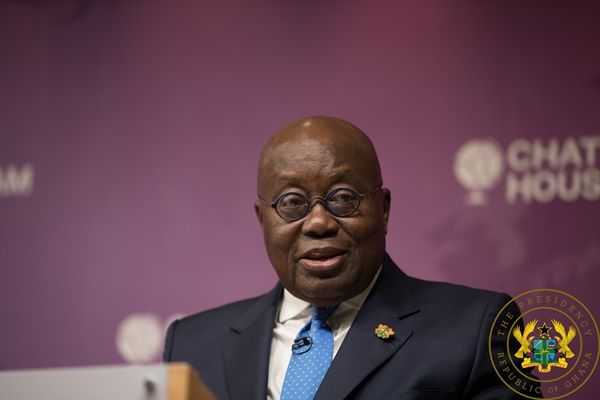President Nana Addo Dankwa Akufo-Addo has urged members of the Economic Community of West African States to comply with, and enforce judgements of the bloc’s Community Court of Justice (CCJ) for stronger integration of the region.
He noted that despite the best efforts of the Court to deliver on its mandate, it was constrained by the poor rate of enforcement of its judgements that presently stood at 13 per cent.
“Unless member states comply with the judgements of the ECOWAS Community Court of Justice, it will be difficult to build public confidence in the court…I appeal to all member states to ensure that they comply with their treaty obligations by observing and obeying the judgements of the court,” he said.
The President made the appeal when he opened the 11th external session of the CCJ in Accra on Monday.
He called on all member states that were yet to appoint competent national authorities for the enforcement of judgements of the Community Court to “respectfully do so without further delay.”
The Court’s external session will run from March 21 to April 1 this year at the Court Complex in Accra. The session forms part of efforts to bring justice closer to the grassroots for the benefit of indigent citizens who could otherwise not afford the attendant cost of litigation in the seat of the court at Abuja, Nigeria.
The session, which is a key activity of the annual work programme of the Court, also provides the opportunity for citizens to observe the Court in session, sensitize the public and engage with its stakeholders. It provides the opportunity for judicial dialogue with national courts of host countries.
Some sixty cases, one pertaining to Ghana, would be adjudicated by the Court during the session.
President Akufo-Addo however suggested to the Court to align its practices and procedures to the generally recognised rules of other international Courts to obviate any potential conflict between the courts and national governments.
He submitted that the CCJ should insist that all applicants for the exercise of the Courts expanded jurisdiction satisfied the requirement of the exhaustion of domestic remedies prior to filling their cases with the Court.
That, he said, would allow for the systematic development of the authority of the Court.
President Akufo-Addo noted that the CCJ, as the guarantor of ECOWAS Community norms, had a strategic role to play in the integration process of the bloc.
Thus, the Court must be supported to provide the enabling legal environment for the integration of the region.
Echoing the concerns of stakeholders regarding the reduction of the Courts’ judges’ from seven to five members as provided for in the initial protocol, the President stressed that it would be appropriate to review the merits of restoring the composition of the Court to seven members.
He said it was in the interest of the Community that the Court was strengthened to provide the enabling legal environment for the integration of the region.
“We must refocus the judicial mandate of the Court to hasten the integration process. It is time to focus on a community legal order and the harmonisation of the legal and judicial systems of member states
“National sovereignty should not be an impediment to the realisation of our community objectives…all that is needed is the necessary political will,” he stated.
The number of judges of the Court were reduced to five from seven in 2018 as part of the restructuring of the Community and it’s institutions. But stakeholders have expressed support for the restoration to seven, the number of Judges of the Community Court of Justice, in order to enable the Court cope with the increasing number of cases filed before it.
Source: GNA


